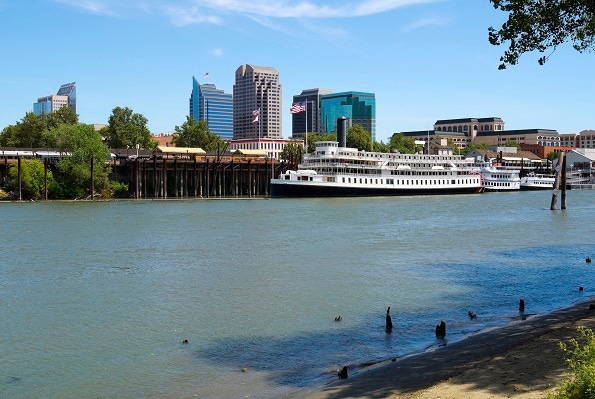
California may be the place where Mark Twain is believed to have said, “Whiskey’s for drinkin’ and water’s for fightin’ over.” But in the past decade, the Golden State has had nothin’ on the Klamath Basin.
The basin that straddles the Oregon-California state line became Ground Zero for water fights in 2001, when biological opinions on endangered suckers and shortnose salmon led the U.S. Bureau of Reclamation to abruptly shut off irrigation water to hundreds of farms.
Years of legal battles eventually gave way to five years of talks involving farmers, fishing interests, environmentalists and local, state and federal officials. In 2010, representatives of those groups gathered in the rotunda of the Oregon state capitol to sign two landmark agreements – the Klamath Basin Restoration Agreement and Klamath Hydroelectric Settlement Agreement.
The two pacts outlined water-sharing among the tribes, fishermen and farms that had been battling over a limited water supply for decades. They included various fisheries improvements around the basin, and their most controversial element – the removal of four dams from the Klamath River. In 2014, ranchers in the upper basin reached a similar agreement with local tribes.
The 50-some bureaucrats, activists and growers working to make the agreements a reality encountered no shortage of obstacles and setbacks, including the inability of Congress to pass authorizing legislation by an end-of-2015 deadline.
But they regrouped and forged a new set of pacts that called for a nonprofit entity to be formed, take control of the dams from owner PacifiCorp and seek approval for their removal from the Federal Energy Regulatory Commission. This summer, the Klamath River Renewal Corporation submitted its plan to FERC.
It’s a great story of perseverance by, among others, career government employees who have earnestly sought a solution that, while not perfect, would meet as many parties’ needs as best it can.
I saw that same spirit of cooperation and determined problem-solving in California natural resources officials Chuck Bonham and Karla Nemeth as they detailed a set of proposed agreements with water agencies throughout the Central Valley aimed at improving conditions in the Sacramento-San Joaquin River Delta. The two worked feverishly over a 30-day period to be able to present the pacts to the State Water Resources Control Board on Dec. 12.
But the board all but ignored their work as members voted, 4-1, to impose higher minimum flows in three rivers that flow into the San Joaquin River. While farm groups say the decision torpedoes water rights, it may have also scuttled an agreement along the Tuolumne River and may invite a lawsuit by the U.S. Bureau of Reclamation.
I used to wonder if California wouldn’t benefit from its “own” KBRA. Bonham and Nemeth have presented the makings of one. But while the agencies that came together in Klamath had a sincere desire to reach a compromise, the only desire that our unelected and unaccountable water board has shown is to flex its own power.
That’s the difference between the Klamath Basin and California.
About the Author(s)
You May Also Like






